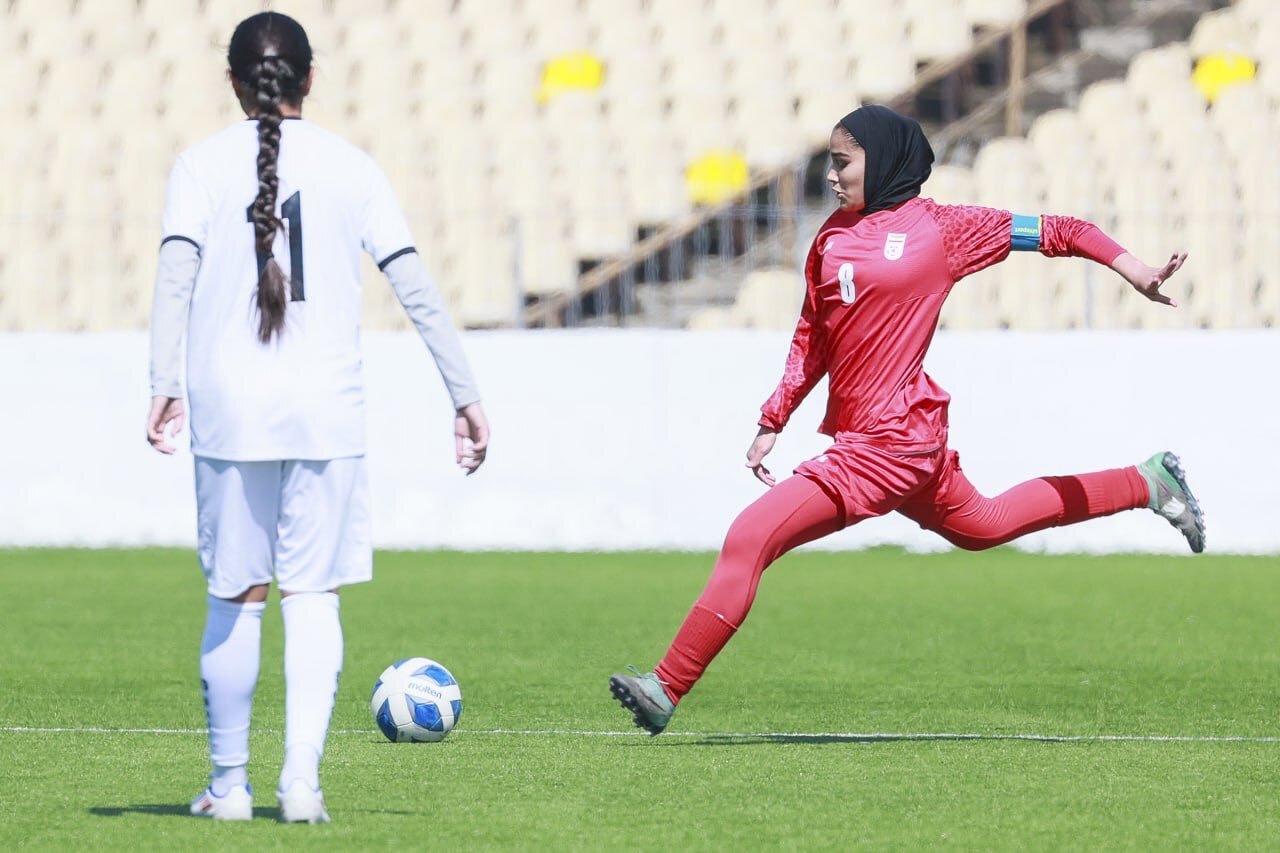Persian Queens make history in Asian football

TEHRAN - The recent qualification of Iran’s women’s national football team, affectionately known as the Persian Queens, for the AFC Women’s Asian Cup 2026 finals marks not just a sporting achievement but a milestone in the history of Iranian women’s football.
This success embodies a powerful narrative of resilience, strategic growth, and the indomitable spirit of a team led by an extraordinary coach, Marziyeh Jafari.
Unlike their previous qualification, which came via a less dominant route, this time Iran topped Group A outright—beating formidable rivals like Jordan, Bhutan, and Singapore. Despite limited resources and minimal media attention, the Persian Queens displayed a tactical maturity and mental toughness rare in a team that have faced systemic challenges such as lack of infrastructure, limited international exposure, and scarce financial backing.
Their ability to finish with only one defeat and still lead the group highlights their evolution from underdogs to serious contenders on the Asian stage.
The mastermind behind this transformation is Jafari, a figure whose personal story parallels the team’s journey. Having endured profound personal losses and hardship, Jafari’s leadership style blends resilience with meticulous preparation and psychological strength.
Far from relying on emotional, unstructured play, her team operate with clear tactics and composure. Under her guidance, the players have learned to “comeback”, to rise after setbacks and maintain focus under pressure, qualities that were crucial in overcoming a tough Jordanian side on their home ground.
Key players such as Sara Didar and Negin Zandi have become symbols of Iranian women’s football, scoring vital goals that broke down not just defenses but barriers of doubt and underestimation.
The team’s goalkeeper Raha Yazdani and captain Zahra Ghanbari provided stability and leadership that held the team together in moments of intense competition Their combined hard work, along with the strong tactical guidance from Jafari, has changed what Iranian women can achieve in a sport that has long been dominated by men and faced many challenges.
This qualification is more than a ticket to a prestigious tournament; it is a testament to the power of perseverance and vision. Despite playing with far fewer resources compared to regional football powerhouses like Australia, Japan, or South Korea, Iran’s women have proven that with unity, determination, and intelligent coaching, success is attainable.
Looking ahead, the challenge will be to sustain this momentum and to demand greater support from media, football authorities, and society at large. The Persian Queens have opened a new chapter, not only in sports but in the cultural narrative of Iranian women asserting their place on the international stage.
In this time of rising Iranian women’s football, the team’s success under Coach Jafari is a clear example that great things can come from hardship.
Leave a Comment